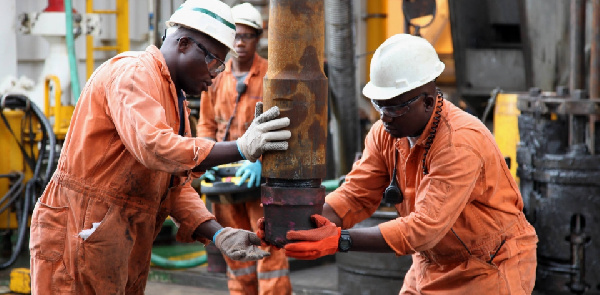
Swiss Oil Trader Accuses Springfield and GMP Energy of Orchestrating Complex Deception
- Whistleblower Petition Alleges $94 Million Fraud in Ghana’s Petroleum Sector
NorvanReports can confirm that a formal petition was submitted to Ghana’s Economic and Organised Crime Office (EOCO) on May 16, 2025, alleging an elaborate and high-value fraud scheme involving two Ghanaian petroleum companies, Springfield Exploration & Production Ltd. and GMP Energy Ltd., and claiming financial losses totalling USD 94.35 million.
The complaint, lodged by Alberto G. Salsiccia, Chief Financial Officer of Swiss-based Petraco Oil Company SA, accuses Springfield and GMP of engineering two separate but interconnected schemes. The document alleges that these operations were designed to deceive, misappropriate funds, and obstruct justice, with coordination across state agencies, including Ghana’s Bulk Oil Storage and Transportation Company (BOST).
At the centre of the petition are serious charges of fraudulent misrepresentation, criminal breach of trust, and concealment of financial transactions. The document describes a cross-border web of deceit involving forged contractual commitments, fictitious regulatory approvals, and misused arbitration processes in Dubai and London.
Scheme One: The Disappearance of $30.8 Million in Petroleum Payments
The first scheme detailed in the petition involves the sale of petroleum products worth over USD 30.8 million, in which GMP Energy Ltd acted as buyer in a transaction originally structured between Dubai-based EDURC Company DMCC and Ghana’s BOST.
According to the complaint, on July 8, 2024, a formal contract was executed between EDURC and GMP for the supply of petroleum products. EDURC, acting in coordination with Petraco, assigned its right to receive payment from GMP to Petraco. BOST, the end-purchaser of the petroleum products, made full payment to GMP Energy as expected.
However, Petraco alleges it never received the assigned funds. The petition claims GMP, in collaboration with BOST officials, deliberately concealed the payment, provided false representations about the transaction’s status, and misled Petraco into believing the funds had not yet been released. The petition further states that proceeds from the transaction were diverted for other undisclosed business operations.
Notably, the petition cites a face-to-face meeting on February 3, 2025, in Accra, during which both Kevin Okyere, who is described as controlling both Springfield and GMP, and Geena Malkani, sole shareholder of GMP Energy, allegedly admitted to having “wrongfully retained the funds” from the transaction. This, the petition claims, provides clear evidence of premeditated wrongdoing.
Scheme Two: The $63.5 Million Unitisation Loan Fraud
The second and larger scheme involves the disbursement of USD 63.5 million to Springfield under a USD 100 million loan facility agreement signed on February 7, 2023. The loan was advanced in two tranches of USD 25 million each, with the promise of further disbursements dependent on regulatory and commercial milestones.
Springfield, according to the petition, presented the facility as necessary to finance the unitisation of its Afina oil discovery with Eni Ghana’s Sankofa Gye Nyame (SGN) field. The company reportedly claimed that approvals from the Petroleum Commission and the Government of Ghana had been secured and that the project was ready for implementation.
However, the petition asserts that these representations were knowingly false. It claims the defendants were fully aware that the required approvals had not been obtained, that the unitisation process was stalled or unlikely to proceed, and that no credible repayment plan existed tied to actual oil production.
Despite repeated demands for repayment, no funds have been returned to Petraco. The 18-month repayment period under the facility agreement, which ended in August 2024, has now lapsed without settlement.
Legal Breaches Cited
The petition calls on EOCO to initiate a formal investigation under Ghana’s Economic and Organised Crime Office Act, alongside prosecutions under the Criminal Offences Act, citing fraud by false pretences, conspiracy to defraud, and stealing.
The Anti-Money Laundering Act is also referenced due to the international nature of the financial flows, particularly in relation to the Dubai-based EDURC and ongoing arbitration in London and Dubai, which the petition describes as diversionary tactics aimed at frustrating criminal accountability.
The complainant alleges that the accused parties are using the civil proceedings to shield themselves from prosecution, even though criminal intent and direct admissions have been documented. The petition further notes a lack of cooperation with the Criminal Investigations Department (CID) and continued commercial operations funded by proceeds of the alleged crimes.
Requests and Reliefs Sought
Petraco is seeking a series of immediate actions by EOCO, including:
- A full investigation into the activities of Springfield, GMP Energy, and affiliated individuals;
- The freezing of all assets associated with the proceeds of crime;
- Retrieval of banking records and transaction histories from local and international banks;
- Engagement with foreign legal authorities to coordinate multi-jurisdictional asset recovery;
- Measures to prevent further dissipation of assets;
- Protection for whistleblowers and potential witnesses.
The petition underscores that the alleged misconduct is not an isolated business dispute but rather a deliberate criminal enterprise designed to manipulate state institutions and extract financial gain from fraudulent transactions.
Implications for Ghana’s Energy Sector
While no official comment has yet been made by BOST, the Petroleum Commission, or the accused companies, the petition has already begun to stir debate within Ghana’s legal and business communities. At issue is not only the alleged sum involved, but the institutional credibility of Ghana’s enforcement agencies in responding to high-level financial crime.
The case could mark a pivotal moment for Ghana’s handling of corporate misconduct in the extractive sector. It may also raise questions about the effectiveness of regulatory oversight and due diligence in energy transactions involving state-linked institutions.
Until EOCO makes a public pronouncement or begins formal proceedings, the petition—and its sweeping allegations—will continue to test both the rule of law and public confidence in Ghana’s ability to police its most strategic sector.
Stay tuned to NorvanReports for updates
Copied








